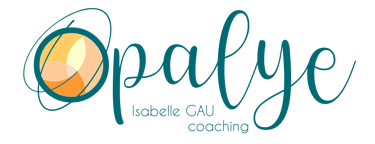Teal companies and People Development
The Teal organizations, pioneers of tomorrow's companies (referring to "Reinventing Organizations" by Frédéric Laloux), invite us to a less rigid and more organic way of operating. Here, we will explore people development in the company.
10/10/20232 min read


How to transform the corporate culture to make the most out of organizations? This is what Frédéric Laloux explores in "Reinventing Organizations". Organizations known as "Teal" are presented as pioneers of tomorrow's businesses, inviting us to adopt a less rigid and more organic mode of operation.
In this article, I propose to address People Development in the company
Common Model: People development primarily driven by the needs defined in the job description and managerial competencies in a hierarchy-driven logic.
Teal Model:
Teal organizations naturally provide exceptional learning opportunities. Everyone has the opportunity to take on a new role and try things they've never done before.
Employees are responsible for their own learning and can decide, in accordance with the company's decision-making processes (see the article on decision-making), which training is relevant to them. This training can address both the needs of their role and the employee's aspirations, as well as emerging needs, in a mindset of embracing opportunities.
Teal companies pay particular attention to building a common culture, including the development of relational skills and personal growth. Among the skills to be developed, especially in the field of "soft skills," one can mention:
Self-awareness development (drivers, MBTI, etc.).
Non-violent communication.
Building self-confidence (to feel "capable of" and break free from dependence, accepting uncertainty and paradoxes).
Embracing the right to fail, which is a source of learning (no punishment or blame for failure).
Collective intelligence tools and processes.
Thus, common culture and personal development are integral parts of onboarding programs for new hires, and ongoing training is provided. Experienced employees can also become trainers, allowing the company to become self-sufficient in sustaining its culture.
👉 How is personal development in the Teal model beneficial for the company?
Moves away from short-term thinking, preparing for the future and developing people in areas where they will be most effective.
Opens up possibilities: specialization or versatility development, serving both individual aspirations and company efficiency.
Relational skills and better self-awareness create a safe working environment where responsibility does not generate fear but is a source of fulfillment.
👉 What could prevent us from implementing this?
The feeling of neglecting short-term needs.
The belief that relational skills and better self-awareness (soft skills) are secondary.
👉 What can be done to overcome these challenges?
Preparing for the future is not an option. In the field of personal development as in any other area, the company must align its actions with its vision (where do we want to go? what means must be implemented? what actions need to be taken?).
Incorporating relational skills and enabling better self-awareness into the corporate culture takes time. Consistency and perseverance will be required to progress. To make new practices gradually become second nature, there will be training, practice/experimentation, communication, promotion, occasional failures and adjustments. In the absence of radical change, these new practices can be introduced in small increments and/or on a smaller scale within the company, knowing that what works will naturally inspire and spread.
An exceptional lever will be the determination of the leaders, essential to move the needle. Spectacular changes have been made in companies whose leaders fully embodied the Teal paradigm (such as Jean François Zobrist in the FAVI company, an industrial company in northern France).
The development of organizations is a journey. Everyone has their own path to bring their aspirations and ambitions to life.
And you? How do you envision your company for tomorrow?


